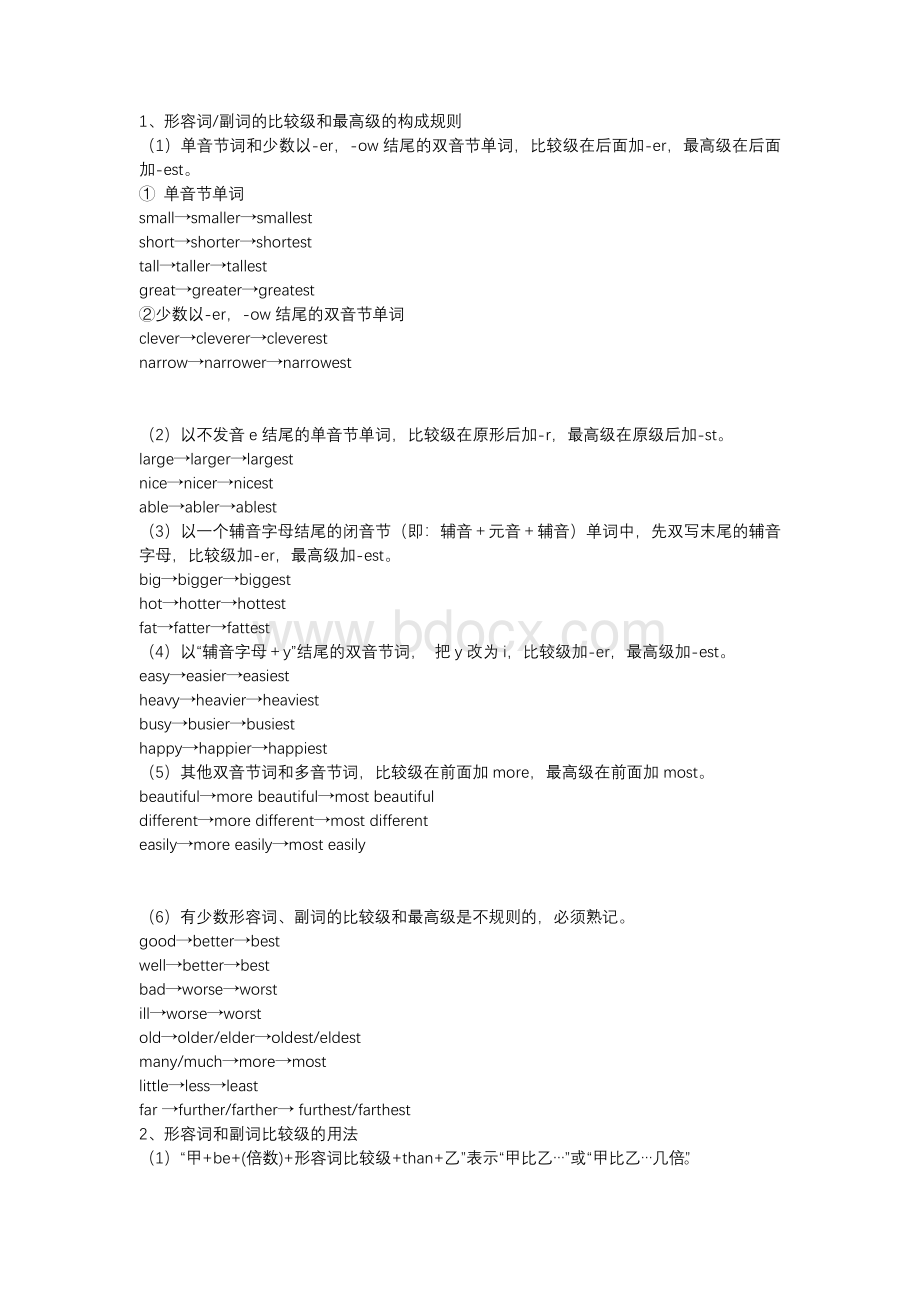初二英语上册:形容词-副词比较级和最高级.docx
《初二英语上册:形容词-副词比较级和最高级.docx》由会员分享,可在线阅读,更多相关《初二英语上册:形容词-副词比较级和最高级.docx(2页珍藏版)》请在冰豆网上搜索。

1、形容词/副词的比较级和最高级的构成规则
(1)单音节词和少数以-er,-ow结尾的双音节单词,比较级在后面加-er,最高级在后面加-est。
①单音节单词
small→smaller→smallest
short→shorter→shortest
tall→taller→tallest
great→greater→greatest
②少数以-er,-ow结尾的双音节单词
clever→cleverer→cleverest
narrow→narrower→narrowest
(2)以不发音e结尾的单音节单词,比较级在原形后加-r,最高级在原级后加-st。
large→larger→largest
nice→nicer→nicest
able→abler→ablest
(3)以一个辅音字母结尾的闭音节(即:
辅音+元音+辅音)单词中,先双写末尾的辅音字母,比较级加-er,最高级加-est。
big→bigger→biggest
hot→hotter→hottest
fat→fatter→fattest
(4)以“辅音字母+y”结尾的双音节词,把y改为i,比较级加-er,最高级加-est。
easy→easier→easiest
heavy→heavier→heaviest
busy→busier→busiest
happy→happier→happiest
(5)其他双音节词和多音节词,比较级在前面加more,最高级在前面加most。
beautiful→morebeautiful→mostbeautiful
different→moredifferent→mostdifferent
easily→moreeasily→mosteasily
(6)有少数形容词、副词的比较级和最高级是不规则的,必须熟记。
good→better→best
well→better→best
bad→worse→worst
ill→worse→worst
old→older/elder→oldest/eldest
many/much→more→most
little→less→least
far→further/farther→furthest/farthest
2、形容词和副词比较级的用法
(1)“甲+be+(倍数)+形容词比较级+than+乙”表示“甲比乙…”或“甲比乙…几倍”。
如:
TomistallerthanKate、汤姆比凯特高。
(2)“甲+实意动词+(倍数)+副词比较级+than+乙”表示“甲比乙…”或“甲比乙…几倍”。
如:
Igotupearlierthanmymotherthismorning、
我今天早晨起床比我妈妈还早。
3、形容词和副词最高级的用法
(1)“主语+be+the+形容词最高级(+单数名词)+in/of、、、”表示“……是……中最……的”。
如:
Thisappleisthebiggestofthefive、
这个苹果是五个当中最大的。
(2)“主语+实意动词+(the)+副词最高级+in/of、、、”表示“……是……中最……的”。
如:
Ijump(the)farthestinmyclass、
我是我们班跳得最远的。